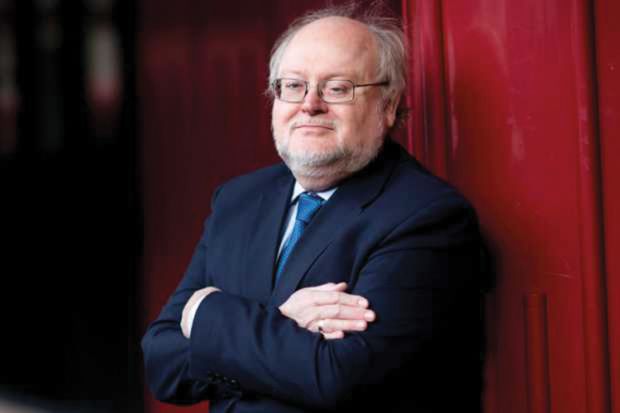The vice-chancellor of the first English university to confirm that it will apply an inflationary increase to existing students’ tuition fees has defended the move.
Sir Steve Smith, vice-chancellor of the University of Exeter, told Times Higher Education that it would be “odd” to charge one cohort of undergraduates less simply because they started a year earlier.
Exeter has been accused of holding learners “to ransom” by the National Union of Students, after announcing that the increase in fees to £9,250 from autumn 2017 would apply to current students as well as new ones.
But Sir Steve said that Exeter’s website had stated since 2013 that fees could be subjected to inflationary increases, something that is now expected to occur periodically as a result of the planned teaching excellence framework (TEF).
“We understand that no one wants to pay more but we have said to entrants in the past [that]...if we are able to raise fees in [line with] inflation, we have always said that we would do that,” Sir Steve said. “It seems odd to say, come and be educated with us, but you’ll pay a different fee because other students started a year earlier.”
Sir Steve highlighted that tuition fees had risen in line with inflation prior to their rise to £9,000, after which they were frozen for four years.
Tim Quine, Exeter’s deputy vice-chancellor, said that the decision – which is permitted under the government’s proposals – had “not been taken lightly” but reflected how the “costs of delivering a world-leading education have continued to rise” during the tuition fee freeze.
But Sorana Vieru, the NUS’ vice-president (higher education), said that the TEF meant that students “can be held to ransom for simply wanting to continue their studies”.
“Making this announcement just before A-level results day shows a callous disregard for the thousands of students currently looking forward to university life,” she wrote in a THE blog. “They have been mis-sold university places on the basis of costs that will not necessarily apply. The amount a university student pays can now rise year-on-year, in unpredictable ways.”
The names of higher education providers who will be permitted to increase their fees under the first year of the TEF was set to be confirmed by the government later this month.
Register to continue
Why register?
- Registration is free and only takes a moment
- Once registered, you can read 3 articles a month
- Sign up for our newsletter
Subscribe
Or subscribe for unlimited access to:
- Unlimited access to news, views, insights & reviews
- Digital editions
- Digital access to THE’s university and college rankings analysis
Already registered or a current subscriber? Login








